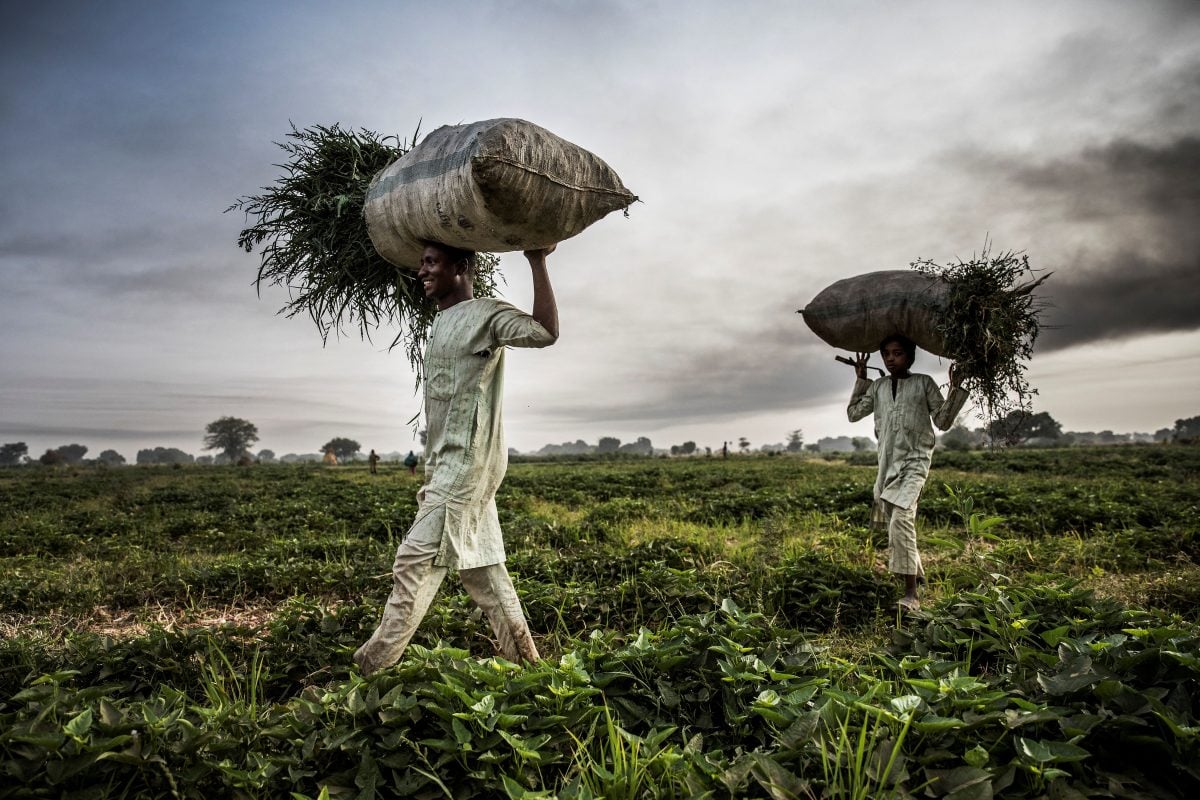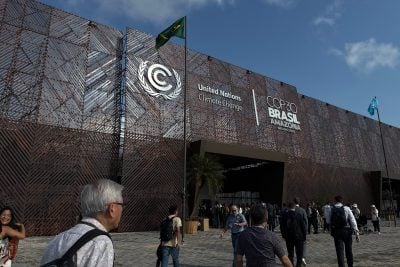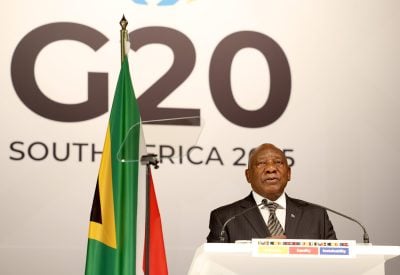Agriculture accounts for roughly a third of Africa’s GDP and provides a livelihood to more than half the continent’s workforce. Yet for millions of African farmers working the land, the promise of prosperity remains elusive due to stubbornly low crop yields.
Nowhere is this challenge more apparent than in cereal farming, which includes the cultivation of key commodities like wheat, rice, maize, barley, oats, rye, millet, sorghum, buckwheat, and mixed grains. According to the Food and Agriculture Organization of the UN (FAO), cereal yields in Africa trail the rest of the world by a notably wide margin.
In 2023, the continent’s cereal yields stood at 1.7 tonnes per hectare, which is less than half the global average of 4.24. By contrast, Asia achieved cereal yields per hectare of 4.46 tonnes, behind Europe (4.53), South America (4.69) and North America (6.78).
“Global cereal yields have tripled since 1961… However, yields across most African countries have lagged behind,” says Hanna Ritchie, deputy editor at Our World in Data.
“This is bad for farmers: they get much smaller harvests and live on much lower incomes. It makes it harder for countries to feed their populations. And it’s a problem for biodiversity: lower yields mean that farmland has to expand into wild habitats,” Ritchie says.
Experts blame the perennially low crop yields in Africa on multiple factors, chief among them the inadequate use of fertilisers and worsening soil degradation – a problem that has intensified over the years amid the escalating climate crisis.
Fertiliser use in Africa is among the lowest globally, averaging around 22 kg per hectare of arable land in sub-Saharan Africa compared to the global average of 140 kg per hectare. This under-use contributes to nutrient-depleted soils and low crop yields.
Moreover, approximately 75% to 80% of the continent’s cultivated area is reportedly degraded, resulting in a loss of 30 kg to 60 kg of nutrients per hectare annually, according to the African Union (AU). If unresolved, projections indicate that over half of the currently arable land may become unusable by 2050.
Addressing the challenges
OCP Nutricrops, a subsidiary of Moroccan phosphate and fertiliser giant OCP Group, was set up in 2022 in part to help Africa tackle these very challenges, according to Youssef El Bari, the company’s CEO and chairman. “Our long-term strategy is to protect the environment and increase agricultural productivity by promoting the use of customised plant nutrition solutions,” he tells African Business. “By addressing soil degradation and promoting smarter fertilisation practices, we have a unique opportunity to unlock higher yields, improve food quality, and reduce environmental impact.”
He observes that “one of the reasons fertiliser use in Africa remains seven times lower than the global average is that buyers can’t access the financing they need to acquire fertilisers.”
“OCP is therefore deploying risk-sharing finance models to empower farmers to access the products they need to improve yields and, critically, improve their livelihoods,” he notes.
A customised approach
Another challenge – besides inadequate fertiliser use stemming from financial constraints – is improper use of the product. Very often, farmers opt for a one-size-fits-all approach, instead of selecting the specific fertilisers that are best suited to their soil types. In some cases, they may have the right fertilisers for their soil types, but the amount of fertiliser applied, the timing, or the application method is wrong, explains El Bari.
To remedy this, he says that OCP Nutricrops is championing a “4Rs” approach – which stands for right source, right rate, right time, right place. “It sounds simple, but it changes everything. Yields go up, losses go down, and the soil stays healthier.”
“The method allows us to ensure precise, optimised nutrient management based on responsible farming practices that improve yields, reduce run-off and lessen environmental impact.
“We work directly with farmers to put this into practice, providing training, soil analysis, and customised advice. And we scale it through partnerships, with local institutions, cooperatives and NGOs [non-governmental organisations], to raise awareness more broadly in the markets where we operate.”
This customised approach, El Bari argues, is what will help make African agriculture more productive and sustainable in the face of the challenges posed by climate change. “The biggest opportunity for growth is in widening access to customised fertiliser solutions, tailored to the specific needs of different soils and different crops,” he says.
“Customisation not only enables farmers to sustainably increase their yields – while preserving the environment and soil health – but is also cheaper for farmers since it means they do not have to pay for nutrients that their soils and crops do not need.”
Leveraging digital innovation
El Bari says that digital innovations such as big data, artificial intelligence (AI) and satellite imagery are greatly aiding the company’s efforts to improve soil health in Africa. “We’ve built mapping and monitoring tools that combine satellite imagery, AI and local soil analysis – all adapted to the specific needs of African farmers.
“So far, we have mapped over 54m hectares of land in Africa alone, building a comprehensive profile of soils, and developing farming and nutritional strategies to empower farmers to care for their soils and boost production,” he adds.
From this data, El Bari says the company has developed more than 100 custom fertiliser formulas – 52 of them designed specifically for African soils and crops. “The goal is to give farmers the right tools, not just more tools. These technologies are helping us move from guesswork to precision, even in areas with little infrastructure,” he adds.
El Bari cites the work that AgriEdge – a precision agriculture company within OCP Group – is doing putting the power of big data in the hands of African farmers.
Faissal Sehbaoui, AgriEdge CEO, tells African Business that the company offers advanced tools, backed by data, to assist farmers throughout the growing season – from planting to harvesting. “AgriEdge aims to help farmers optimise the use of water, fertilisers, and other resources, leading to increased efficiency and reduced environmental impact,” he says.
“AgriEdge provides solutions like AquaEdge, which uses satellite imagery and sensors to help farmers optimise irrigation schedules, monitor soil moisture, and track rainfall,” he adds. “FertiEdge uses AI and real time soil data to optimise fertiliser application, helping farmers reduce nitrogen use by 20% while boosting yields by 24%.”
“YieldEdge estimates production levels with 92% accuracy, enabling farmers to plan for market logistics and sales,” he adds. Finally, CarboEdge helps farmers measure and monitor their carbon footprint.
“We’re focused on the whole ecosystem. We are not just providing agri-tech tools. We are providing training, demonstrating the value of these tools to farmers,” Sehbaoui says.
Committed to Africa
El Bari says that OCP is keen to expand its fertiliser production capacity from 14m tonnes in 2024 to 23m tonnes by 2028. This strategic expansion plan – dubbed the Mzinda-Meskala Strategic Program – was launched in April. New mining and industrial hubs in Mzinda, Youssoufia province, and Meskala, Essaouira province.
“It is supported by future-ready industrial infrastructure across Mzinda and Meskala, connected to the new Safi port via a cutting-edge logistics corridor. The sites will be fully powered by renewable energy and rely on desalinated water, eliminating freshwater usage,” El Bari says. “Africa has everything it takes: land, people, and potential. But it also faces real challenges – low yields, degraded soils, climate risks. That’s why we invest not just in products, but in people and systems.”
Want to continue reading? Subscribe today.
You've read all your free articles for this month! Subscribe now to enjoy full access to our content.
Digital Monthly
£8.00 / month
Receive full unlimited access to our articles, opinions, podcasts and more.
Digital Yearly
£70.00 / year
Our best value offer - save £26 and gain access to all of our digital content for an entire year!

 Sign in with Google
Sign in with Google 



